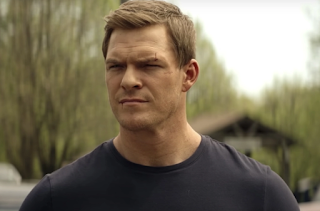 |
| CC 2011 Bradford Timeline |
One of the most tired cliches from Westerns is the town tamer. And you can thank Wyatt Earp for it. In the 1920s, no one had heard of Tombstone, Arizona and the OK Corral. But Earp, who had been a US Marshal in places like Dodge City, Kansas and Peoria, Illinois, still considered frontier land four years after the death of the state's favorite son, Abraham Lincoln.
The OK Corral is an iconic legend of the Old West. But it really didn't enter the public imagination until Earp drifted into Hollywood as what's now called a technical consultant during silent film's heyday. Earp told a screenwriter or a director or possibly even Tom Mix of how he, his brothers, and his consumption-wracked pal Doc Holliday took on a gang of outlaws. Back before Tinsel Town lost the ability to do anything more than remakes or franchises and charge you a second mortgage to see the latest James Bond, they never met a cool story they didn't like.
Nor did a writer named Dashiell Hammett, who decided to adapt the concept for his Continental Op series. The Op, never named, rolls into Personville, Montana, dubbed by the locals as "Poisonville" for its violence and its filthy ground and air from nearby mining. Hammett moves Tombstone north, swaps out the Earp brothers and Holliday for the Op as a solo operator, and uses a recent labor dispute in Butte, Montana (the real-life inspiration for Personville) as a jumping off point.
Thus, the town tamer was born. And it shows up again in the twice-fictionalized tales of Sheriff Buford Pusser (one of Joe Don Baker's surprisingly decent acting turns and a miss for Dwayne Johnson), Jack Reacher's debut (well-adapted for television on Prime), and one of the better latter-day Spenser novels.
What is it about the town tamer that's so intriguing? Earp, after all, was a law man who hired his brothers and deputized the local dentist. Pusser, in the original based-on-a-true-story version of Walking Tall, was a local sheriff.
 |
| Source: Amazon Prime Video |
The Op and Spenser are professionals brought in to solve a problem. Reacher blunders into a small Georgia town that looks like a gentrified version of The Dukes of Hazzard, minus the idiot sheriff and lovably corrupt county boss. (Ironically, Reacher's casual girlfriend is named "Roscoe." I'll let Lee Child explain that one.) Reacher isn't a professional. He's like the Op, except he doesn't even freelance. He's just there to hear some blues music from the source.
But it's one man taking on the system. And in each of these stories, the system has gotten complacent. Earp may have been taking out a local gang of thugs easily knocked over these days by the likes of The Wire's Stringer Bell or one pissed-off police district (or even a bar brawl that goes horribly awry for them.) The Op took on a mining concern that counted on fear to get its way. Reacher goes after counterfeiters who made the mistake of killing his brother. Spenser knocks over a Mexican gangster who decides he's kingpin from Daredevil (either version. It's the same guy.) Usually, where this happens, someone gets too comfortable with their reign of terror. And one thing that such people forget is that reigns of terror require actual terror. If the one coming at you isn't terrified, the whole thing collapses like a house of cards.
Sometimes that works in real life, but it's a staple of our crime fiction, even scifi and spy thrillers. Someone turns "Boo!" into a superpower, and someone else not really feeling it becomes their kryptonite.



